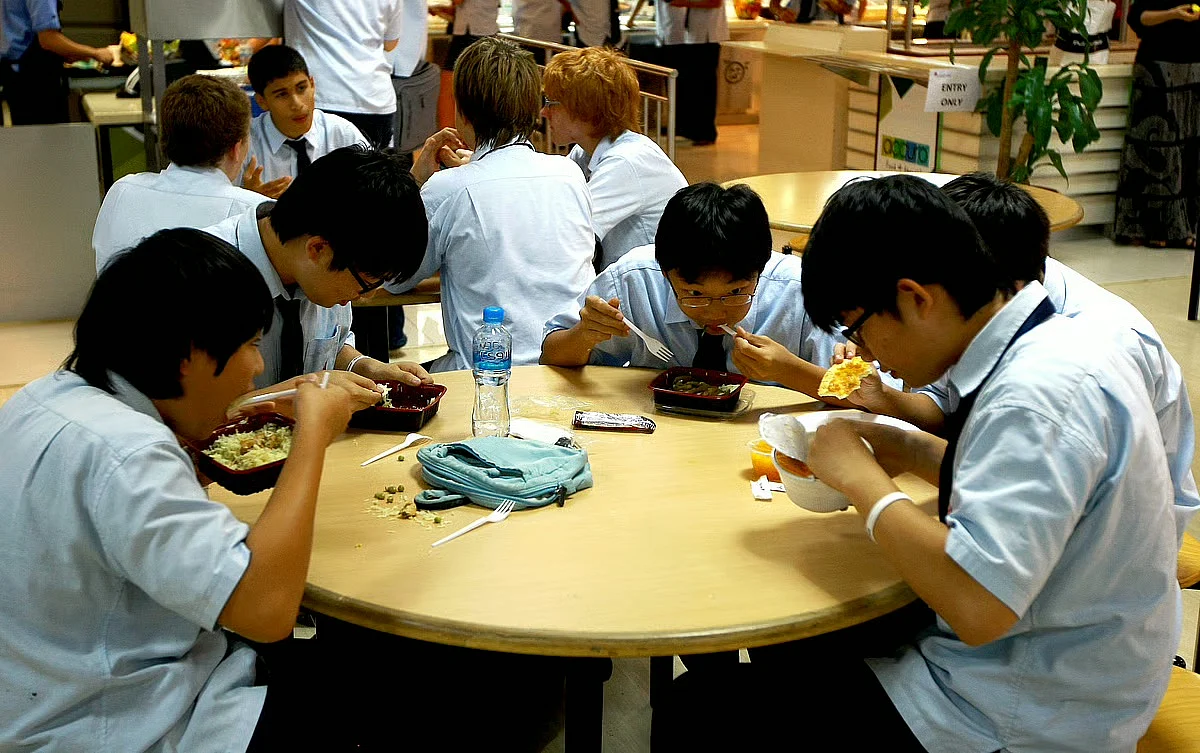
UAE Schools Ban Online Food Deliveries To Promote Healthy Eating For Children
Online food delivery services are not permitted in UAE schools. These measures are part of a broader push by authorities to promote healthy eating habits among children, with the long-term goal of establishing lifelong patterns of good nutrition.
When Khaleej Times reached out to different school groups, they shared how these rules are implemented in practice.
Nutritious meals, on-site support Recommended For YouNoufal Ahmed, Founder and Managing Director of Woodlem Education, explained the school's approach.
“We do not allow online food ordering for students, as our canteen is fully equipped, aligned with MOH standards, and provides nutritious, high-quality meals. With no shortage of food supply, we are eliminating the need for external online orders," Ahmed said.
He reiterated that the wellbeing of every child is at the heart of everything they do, and this includes the way institutions care for their pupil's food and nutrition needs.
He continued,“We have a simple yet compassionate policy to ensure that no child ever feels left out or goes hungry during the school day. If a student forgets to bring their lunch, our caring staff arrange a healthy snack or meal from the canteen so that the child feels supported. Parents are also welcome to drop lunch boxes at the reception, where our team makes sure it reaches the child safely and without disruption."
"We also take great care to follow all Dubai Municipality (DM) and Dubai Health Authority (DHA) food hygiene standards. Meals are served with attention to safety, allergens, and cultural preferences, ensuring every child feels included," he said.
Similarly, a GEMS Education school recently issued a circular to parents outlining procedures for food distribution, particularly when children forget lunch.
The circular also stressed that food safety is a top priority and all practices must comply with child safeguarding regulations, KHDA, and DM guidelines.
The circular says,“Before handing over the food you (parents) are required to sign an Undertaking form at the school reception. Online food delivery services (e.g. Talabat, Noon etc) are strictly not allowed. Parents must personally hand over the food by signing the undertaking form.”
Immediate action when lunch is forgottenAt JSS Private School Dubai, children who forget their meals are attended to without delay. Chitra Sharma, Principal, said,“Parents are contacted without delay and asked whether they prefer their child to receive a nutritious cafeteria meal or wait for food from home. If cafeteria food is chosen, the school confirms the menu with parents to ensure it matches the child's dietary requirements.”
The school also emphasized building responsibility among students.
“We encourage our students to take responsibility for remembering their own lunch,” Sharma pointed out.“It's part of nurturing independence and accountability.”
Regarding online deliveries, she added,“No, we don't allow as of now... however, if in future we receive any guidelines from DHA, we are open to reconsider.”
Innovation in Abu Dhabi schoolsThe Department of Education and Knowledge – Abu Dhabi (ADEK) introduced new rules at the start of the academic term, requiring schools to tighten healthy food policies, including a ban on food delivery services during school hours.
Since then, some schools in the capital have adopted a 'No Child Left Empty' protocol.
David Flint, Principal of Diyafah International School, Abu Dhabi, said, "Parents are notified immediately, and thanks to a new cashless purchase system linked to each student's ID badge, children can buy healthy meals from the school café. Parents can top up the card remotely, often before mealtimes, ensuring a seamless experience that bridges the gap between home and school.
Fling added,“Meals at the school are designed to be nutritious and balanced, clearly labelled with vegetarian, vegan, and gluten-free options, and free from foods high in sugar and fat. Sugary drinks and 'junk' items have no place on the weekly menu. Instead, children are encouraged to see healthy eating not only as a positive daily habit but as part of their broader education.”

Legal Disclaimer:
MENAFN provides the
information “as is” without warranty of any kind. We do not accept
any responsibility or liability for the accuracy, content, images,
videos, licenses, completeness, legality, or reliability of the information
contained in this article. If you have any complaints or copyright
issues related to this article, kindly contact the provider above.


















Comments
No comment